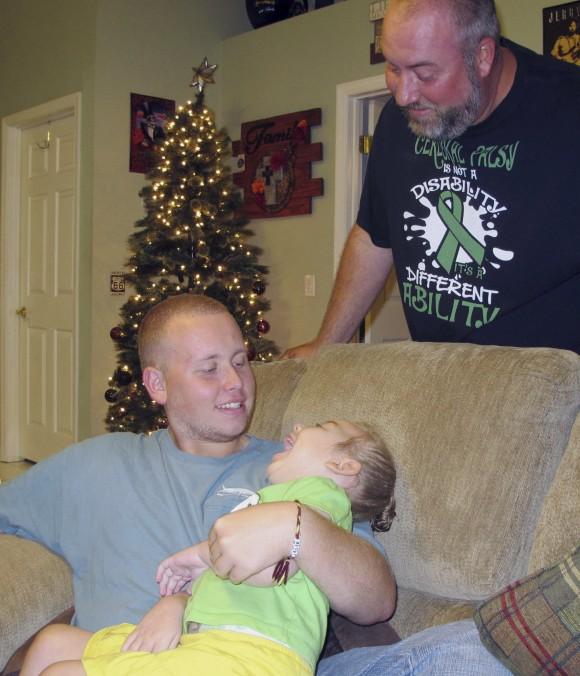JACKSONVILLE, Fla.—Because of her cerebral palsy, 4-year-old Scarlett Wilgis has trouble opening her hands and can’t get around without help. Her parents have scoured store shelves and websites looking for toys for her, but have mostly been disappointed.
“Finding the toys at Walmart or Target, they’re pretty much non-existent,” said mom Dezaraye Wilgis, sitting with Scarlett in front of their twinkling Christmas tree in St. Augustine. “Or if you get them through a medical supplier they’re extremely expensive.”
While major toy makers have changed with the times and sell dolls with wheelchairs and crutches, those designed to be used by children with severe disabilities like Scarlett are still difficult, if not impossible, to find. Because they have to be customized for each child, the cost can skyrocket.
This conundrum gave two University of North Florida professors an idea: mix engineering and physical therapy students in a lab with the goal of converting toys from store shelves into custom-made fun for disabled children. The Adaptive Toy Project is now in its third year, and has drawn a 5-year grant from the National Institutes of Health. It is helping families like Scarlett’s while giving the students a dose of community service and real-world experience that will stick with them long after graduation.
Dr. Alison Cernich, a neuropsychologist and director at the NIH’s Eunice Kennedy Shriver National Institute of Child Health and Human Development, said the agency funded the program because it forces students from different fields to collaborate and solve a problem in the community.
“This program is getting students in the early phases of their training thinking about ordinary objects, toys, and how to adapt those toys so that children with limitations can use and play with them like children without limitations,” she said.






